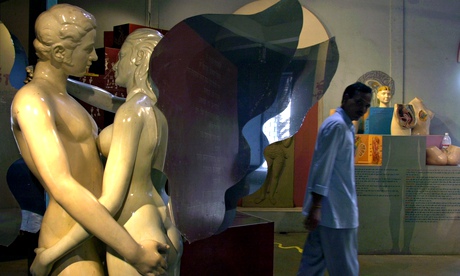
A €15m (£12m) fund to support small, grassroots organisations that are defending sexual and reproductive health and rights was launched in New York on Monday.
The Amplify Change fund, financed by the Danish and Dutch governments, along with the David and Lucile Packard and William and Flora Hewlett foundations, will provide a new stream of cash for local groups that often fail to attract finance for their work from mainstream donors for political or religious reasons, or because the size of the organisations deem them too risky an investment.
The money will provide financial and technical support for local groups, and help build the skill sets of their members. The fund will target groups that are working on often contentious issues, such as improving access to safe abortion or working to decriminalise it, protecting the sexual health of young people, or challenging female genital mutilation or discrimination on grounds of gender or sexual orientation.
“The launch of the Amplify Change fund marks an important event,” said Mogens Jensen, Denmark’s minister for trade and development cooperation. “Despite progress, there is a still a huge unfinished agenda in front of us; the right for women and girls to be able to decide freely about their own bodies and live without fear of violence so they can achieve their full potential.
“It will provide funding to civil society groups working on the neglected areas of the ICPD [International Conference on Population and Development] agenda, reaching the most marginalised and vulnerable population groups.”
The Danish government has allocated just over €11m (82m Danish krone) to the fund.
Lilianne Ploumen, the Dutch minister for foreign trade and development cooperation, said there were two main reasons why grassroots organisations are unable to access grants to carry out their work. One is the difficulty some donors have in funding work that touches on issues related to sex – safe abortion, sex education or sexual orientation. Another is that larger donors struggle to work with smaller organisations based in the global south, or want to give out more money than grassroots organisations need.
“For large funders it can be very difficult to work with southern organisations because they don’t know enough about them and are not able to assess their quality,” said Ploumen, who confirmed the Dutch government had pledged an initial €4.8m to the fund for two years, with a view to adding more if it proved successful.
Dutch funding for women’s rights already makes up about a quarter of total donor funding for gender equality from countries on the Organisation for Economic Co-operation and Development’s Development Assistance Committee (OECD DAC). Through its Funding Leadership and Opportunities for Women (Flow) fund, the government has allocated €85m to support 35 projects in 100 countries that specifically support women’s economic empowerment and participation in politics. The current funding pot runs out next year, but Ploumen said she expects another tranche of money for Flow to be announced soon.
The €4.8m investment in Amplify Change is new money from the Dutch government.
Ploumen said the launch of the new fund tapped into movements in countries such as Brazil, India and South Africa to create their own women’s funds to support the work they want to do in their countries. Ploumen added that such funds put trust in local groups to know what works in their countries and communities.
Crucially, she added, the Amplify Change fund needed to allow organisations to fail, a concept that sits awkwardly with traditional donors. “Everyone wants their plans to succeed, but we have to understand that if you try something new it can also fail. That does not mean there is not some learning to come out of it. We have to try new things in order to move the agenda forward.”
John Worley, director of Amplify Change, said the application process would open soon, and he hoped the first set of grants would be handed out early next year. Applications can be made online or offline, and application forms would, he said, be simple to fill in and available in French and English initially. The fund is focusing on groups in south Asia and sub-Saharan African, but could expand. Worley hopes more donor governments will support the fund.
Earlier on Monday, a meeting hosted by the UN permanent mission of Ireland and organised by the Association For Women’s Rights in Development, UN Women and the OECD, was told that donor aid for gender equality and women’s rights had been increasing steadily since 2000. However, the money was not necessarily aimed where it was needed most, or towards smaller organisations, which meant it had not achieve the structural change needed to ensure long-term gains for women.
Emily Esplen, from the OECD DAC network on gender equality, told the meeting that between 2011 and 2012, only 2% of aid to support economic sectors targeted gender equality. Meanwhile, funding for family planning had fallen from 71% in 1995 to 20% by 2011.

